
The universe of Dune is one of the most complex and fascinating in the sci-fi genre, perfectly blending elements ranging from politics and ecology to mysticism and power struggles into a unique story that’s become a classic. With Denis Villeneuve’s adaptation, the saga has gained even more attention, proving that Frank Herbert’s story is way more than just a simple space adventure. For those who were hooked by that mix of stunning visuals, deep themes, and big existential questions, there are some other great movies out there that tap into similar ideas, have almost the same vibe, and also help fill the gap until Dune: Part 3 hits theaters.
Some are visual epics, others lean more into silence and reflection; some focus on action, while others dive into human drama. Either way, they all hit the same nerve as Villeneuve’s work. Here are 7 movies you need to watch if you’re a fan of the new Dune franchise.
1) Arrival
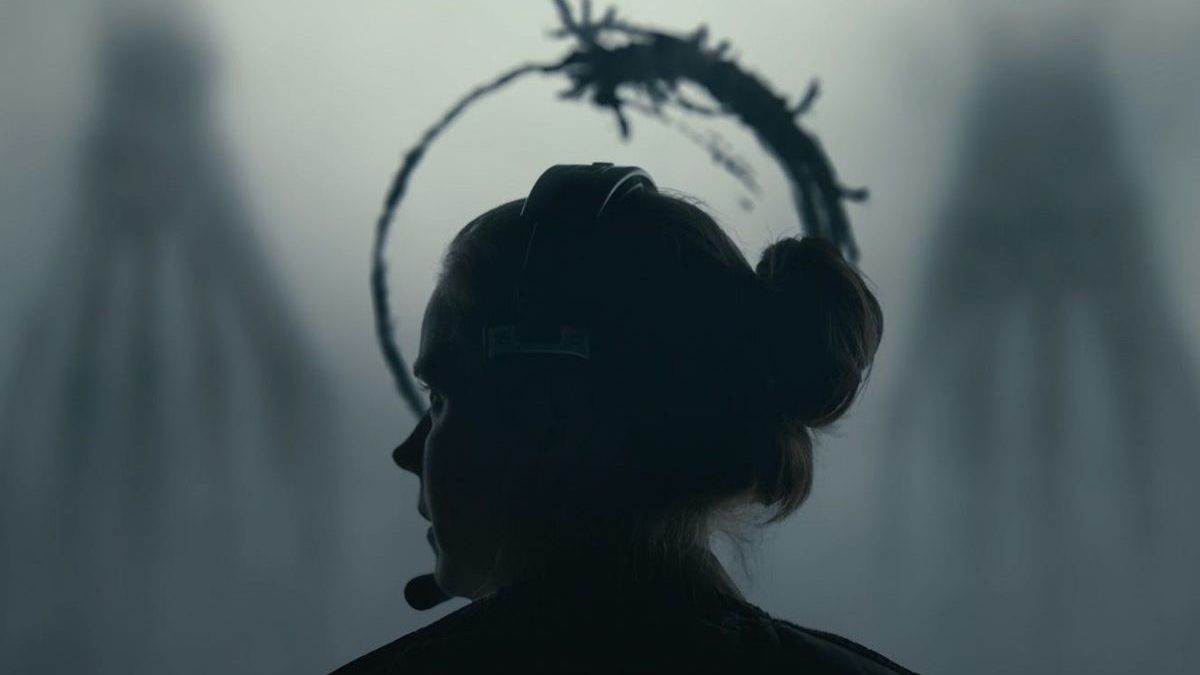
One of the most complicated movies to understand, and one that’s most comparable to the first film in the Dune franchise, is Arrival. This is a production that proves sci-fi doesn’t need explosions to hit hard. Another strong entry from Villeneuve, it tells the story of a linguist brought in to communicate with alien visitors and figure out why they’ve come to Earth. He builds the story around language, time, and loss, with an emotional core and a mystery that unfolds slowly. It drops the viewer into a world that demands patience and focus to piece things together – which is exactly the kind of slow-burn appeal Dune fans tend to appreciate.
Arrival leans into the more thoughtful, philosophical side that’s at the heart of Herber’s story. Especially in how language and communication can shape entire civilizations, the film digs deep into ideas that feel very aligned with Dune. It’s quiet, cerebral, and emotional, and while it’s a more intimate sci-fi narrative, it still carries the same kind of dramatic weight. If you’re drawn to Dune for its ideas as much as its visuals, this is one you shouldn’t skip.
2) Blade Runner 2049
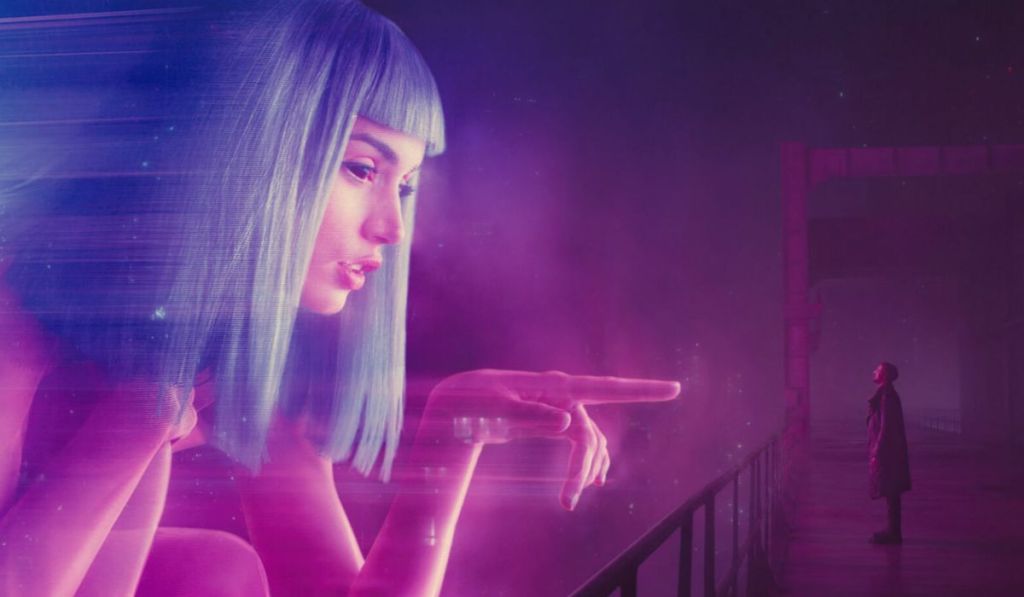
Also directed by Villeneuve, Blade Runner 2049 is, without exaggeration, a masterclass in world building and visual storytelling. It’s a movie that leans on slow pacing and mood to dive into deep existential subjects like identity, memory, and freedom. Set decades after the original, it follows a replicant named K (Ryan Gosling) who uncovers a long-buried secret that could change the course of civilization. Even back then, Villeneuve showed he could handle dense, quiet worlds well before taking on Dune. If you’re a fan, you’ll definitely recognize that same approach here.
The film stands out because it has the same vibe as the franchise: introspective, atmospheric, and visually stunning. Plus, the philosophical questions about what it means to be human or part of something bigger are right at the center of both stories. If you’re into Dune for the emotional weight, the sci-fi depth, and the visuals, Blade Runner 2049 is a must-watch companion piece.
3) Mad Max: Fury Road

Mad Max: Fury Road may seem like nothing but nonstop action at first glance, but behind all the chaos is a well-built post-apocalyptic world where ideologies and resources are used to control people – just like in Dune. The story follows Max (Tom Hardy) and Furiosa (Charlize Theron) as they try to escape a tyrannical warlord while crossing a desert wasteland. The use of this harsh landscape itself as part of the conflict and part of who these characters are makes that connection even stronger. The movie doesn’t waste time with exposition, and throws you right into the action, and does it with impressive clarity.
For those who enjoy the more physical and brutal side of Dune, especially the survival struggles and how characters interact with the environment in Part 2, Mad Max: Fury Road checks all the boxes. Immortan Joe (Hugh Keays-Byrne) as a dictator, the War Boys as a brainwashed army, and Furiosa as the one trying to break the system, create a political and social structure that feels a lot like what we see in Villeneuve’s version of Dune. It’s a dystopia about power and survival, with strong visuals and a story that really holds up.
4) Star Wars: Episode IV – A New Hope
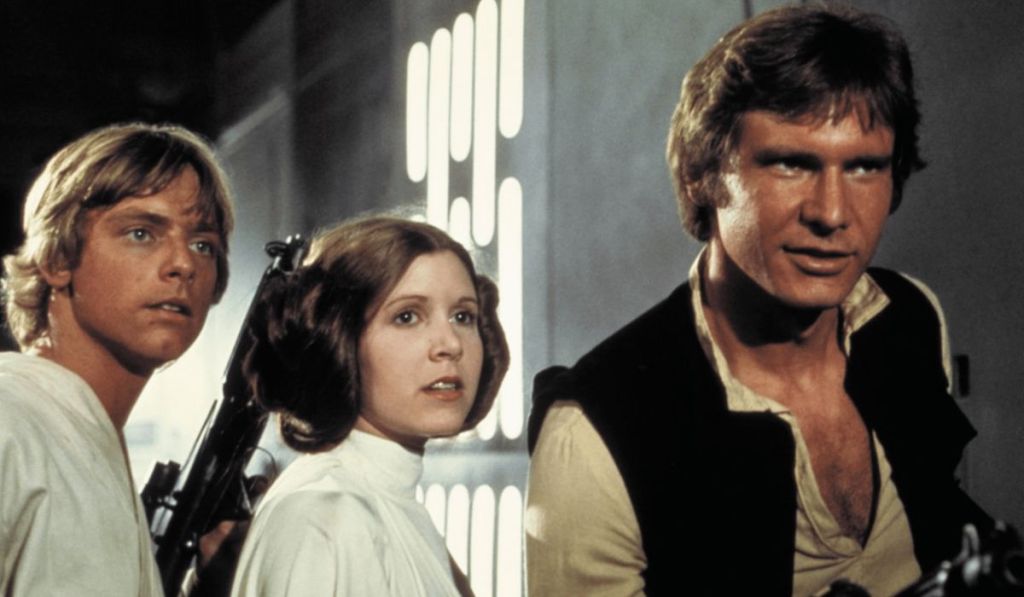
The influence of Dune on Star Wars is undeniable: from the chosen young man to the galactic empire and the desert planet. But what makes Star Wars: Episode IV – A New Hope essential in this case isn’t just the aesthetic similarity; it’s the fact that it gives a more accessible and straightforward version of a lot of the same archetypes. George Lucas built a massive universe that also blends mysticism, politics, and interplanetary conflict, but with a lighter, more adventurous tone.
For fans of Dune, A New Hope almost works as a contrast piece: it’s less dense, more fast-paced, but still built around similar ideas. It’s interesting how Luke Skywalker’s (Mark Hamill) hero’s journey lines up structurally with Paul Atreides’ (Timothée Chalamet), even if the outcomes and messages are different. If the goal is to understand how Dune helped shape other major sci-fi franchises, this is the obvious place to start. And in this case, it’s definitely worth sticking to the original trilogy as a whole.
5) Interstellar
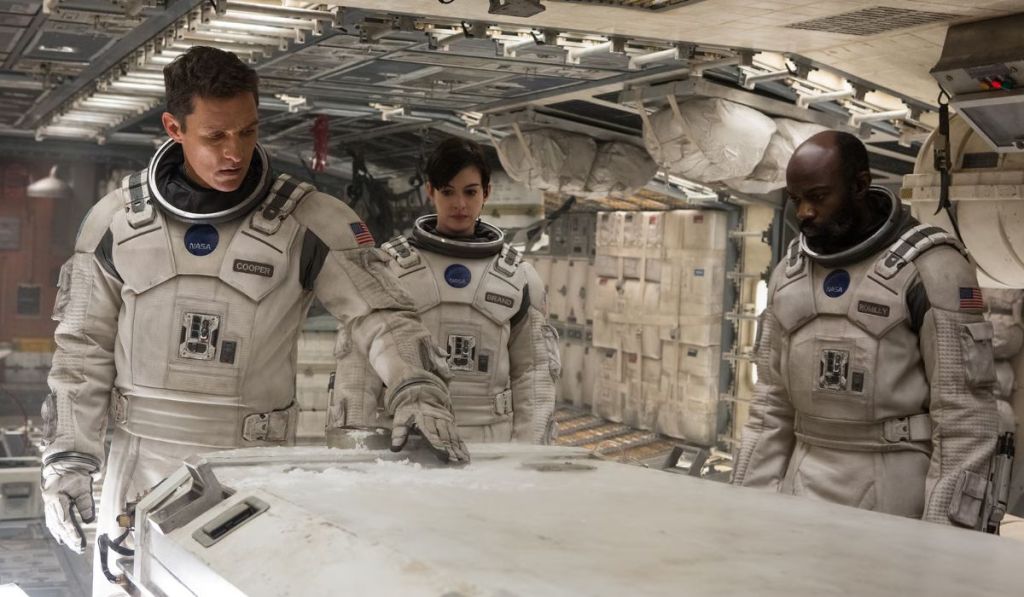
A sci-fi film about love, time, and survival, Interstellar is told on a big scale. The story follows a group of explorers who travel through a wormhole looking for a new home for humanity. The movie focuses on the bond between a father and daughter, but it also digs into the future of the human race in the face of environmental collapse – something that really lines up with the fight for water and resources in Dune. It’s one of those stories that asks for your full attention, with its talk of theoretical physics and time loops, but it’s worth it if you stick with it.
Interstellar is a great pick if you like the philosophical side of Villeneuve’s franchise, but also its emotional core. Directed by Christopher Nolan, it deals with similar questions about fate, sacrifice, and the weight of responsibility. The setting may not be as politically layered as Arrakis, but the idea that one person’s choices can affect the survival of an entire planet feels just as big. It’s a sci-fi epic with a beating heart, and that’s exactly the kind of balance that makes Dune so powerful for a lot of people.
6) The Matrix
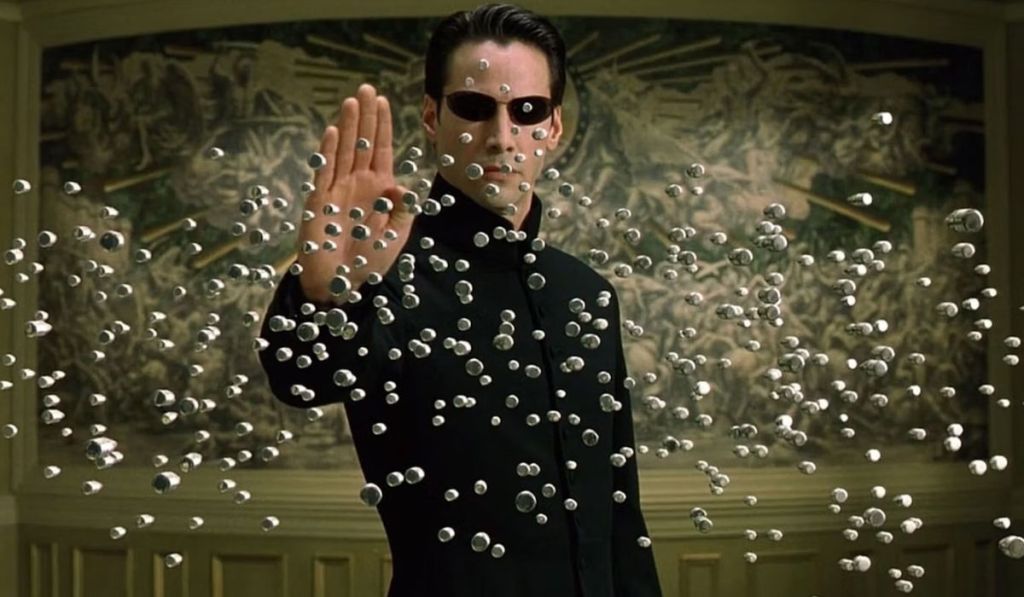
The Matrix has become a classic, but how does it connect with Dune? It’s definitely not a space opera, but it shares the same interest in power structures, questions about reality, and messianic stories. Neo (Keanu Reeves), like Paul, is someone who finds out he’s part of a larger prophecy, and the whole story is about him coming to terms with that. The difference is in the setting: here, the desert is digital and the control is hidden, but the core question is the same: freedom or submission?
For Dune fans, what matters in The Matrix isn’t the cyberpunk style, but how the movie looks at the systems that keep people in place and the need to wake up. It’s a sci-fi that puts just as much weight on ideas as it does on action, and it’s all about personal choices that ripple outward. On the surface, it might not seem to have much in common with Villeneuve’s version of Dune, but it ends up being a must-watch for anyone drawn to stories packed with meaning.
1) Dune (1984)
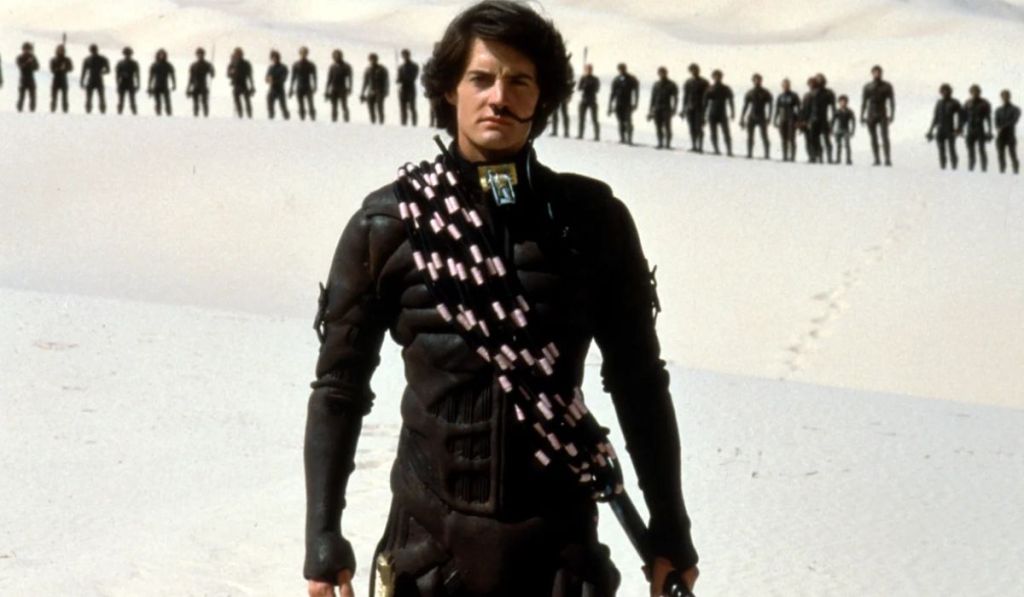
Despite being a flawed adaptation on many levels, as many people know, David Lynch’s Dune is still an important piece for anyone who wants to understand the different ways of translating Herbert’s universe to the big screen. The movie struggles with a fast-paced story and somewhat chaotic editing, which hurts the immersion (especially if you’re not familiar with the books). Still, the visuals are striking, with totally memorable sets, a bizarre atmosphere, and, above all, an honest attempt to capture the more mystical side of the saga.
Dune is not an easy story, let alone an easy one to adapt (even Villeneuve has said so). So the 1984 version is clearly an ambitious effort, even if Lynch himself wasn’t happy with it because of the lack of creative control. It’s impossible to ignore how much this film shaped the visual language of sci-fi adaptations in the ’80s. It may not work as the definitive version, but its weirdness definitely has historical and cultural value, especially if you want to see just how tough Dune really is to bring off the page.
The post 7 Movies You Need to Watch If You Love the Dune Franchise appeared first on ComicBook.com.

